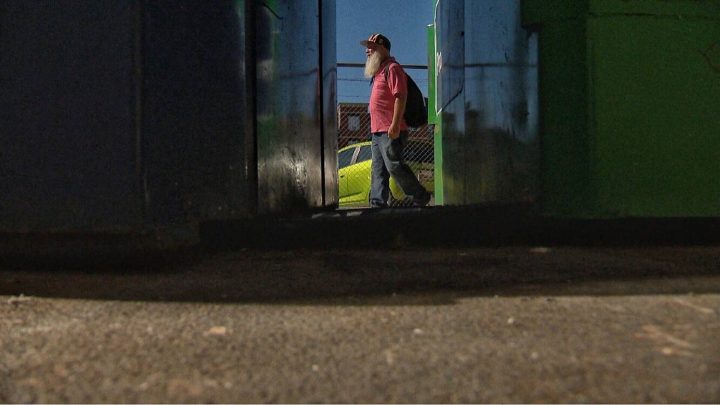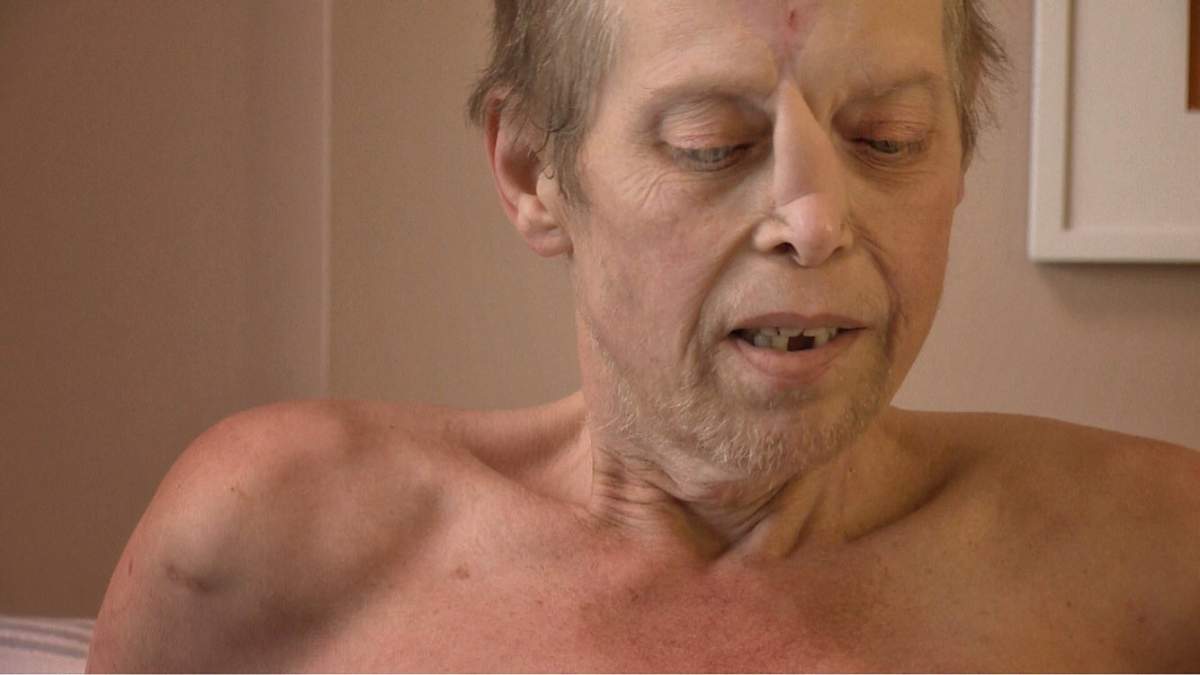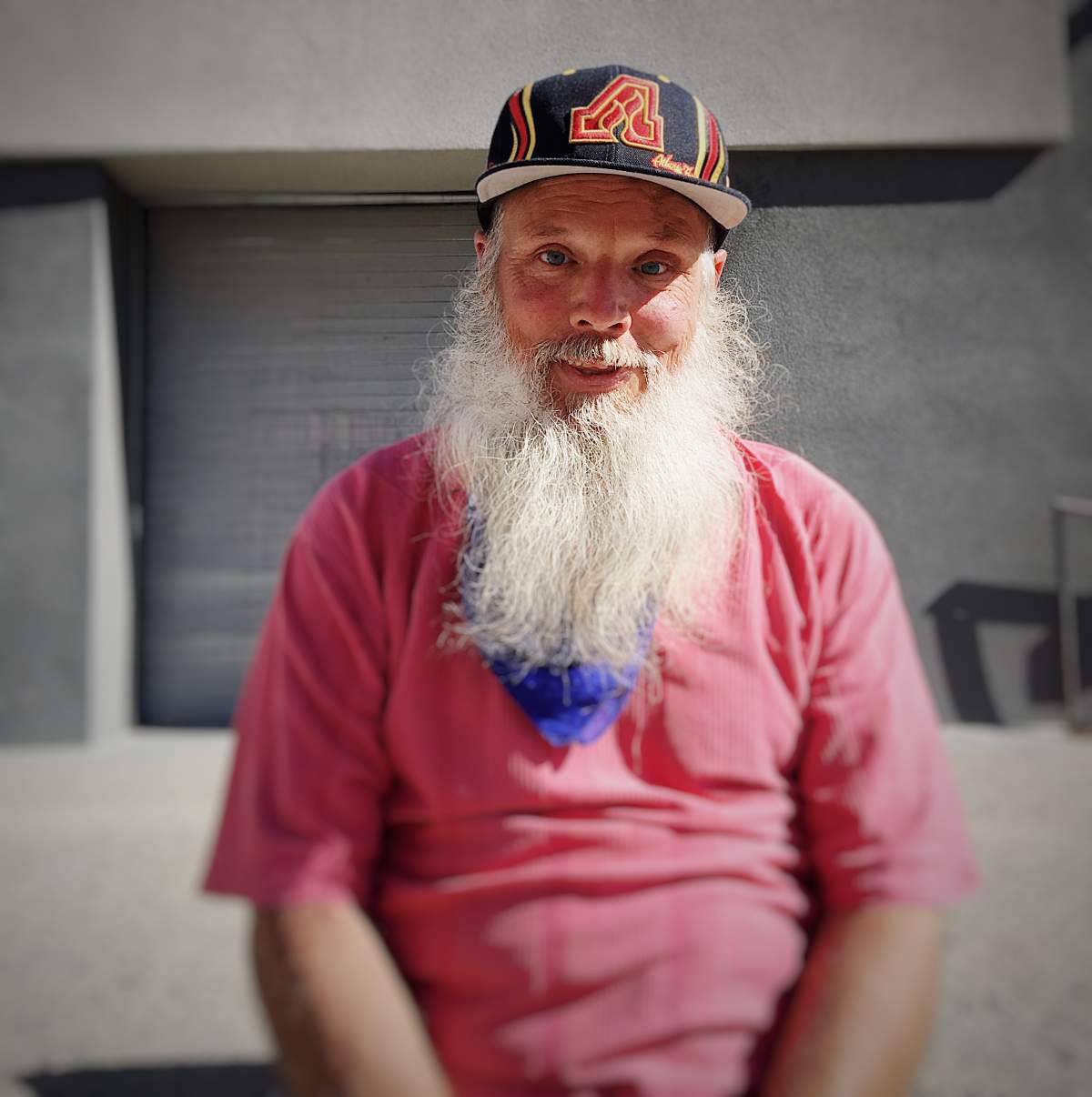
As often as they can, the doctor and nurse duo travel every corner of Calgary in search of their terminally ill patients. All are transient. Some are couch surfing, some live in their car or under a bridge, others in a shelter.
The Calgary allied mobile palliative program (CAMPP) compassionately gives end-of-life care to the homeless.
WATCH: What’s it like to be homeless in Calgary? Nursing students get a first-hand look
They treat people like 58-year-old Shawn Fowler.
“I’m dying. I’ve got terminal cancer,” Fowler said.
“In my last days, I try to make people — whoever they are — make them see what it’s like. I hurt just like they would,” he said.
The CAMPP team has helped him navigate the health-care system to treat his cancer and make him as comfortable as possible, giving him prescriptions to help manage his agonizing pain.
READ MORE: Moved by homeless man, Spruce Grove business starts donation campaign

Get weekly health news
“For me to have that in my life right now, I don’t know what words to use, what would be good enough or strong enough,” Fowler said.
“If I didn’t have these guys on my side I would have had to have killed myself.”
Rachael Edwards is the registered nurse for the CAMPP team. She knows these vulnerable patients can’t go regularly to clinics or hospitals, which is why CAMPP meets them exactly where they are, wherever that may be.
“We have folks in suburbs and harm-reduction buildings and folks that live down the river. We have to be creative and figure out how to do this because they deserve it,” Edwards said.
READ MORE: Revealing photo project shows reality of homelessness for youth in downtown Edmonton
The team was created less than two years ago and is privately funded.
CAMPP has cared for over 30 patients so far with a current caseload of 18.
“There’s far more strength and resilience working with these people than people know,” Edwards said.
“It’s a very privileged place to be. I am lucky to do it.”
Many of the people CAMPP cares for say they have faced judgements in the medical system and have lost faith in mainstream care.
The CAMPP team knows it can’t save them from their medical fate but it can make a difference in their final days or months.
“The very least we can do is, at the end of life, provide some comfort and dignity for these folks who have had traumatic lifetime before that,” Edwards said.
Dr. Simon Colgan is the other half of the CAMPP team. He is equally passionate about the work he does.
“For us, the reason why CAMPP exists and why we feel strongly about it, we believe every individual, every Calgarian should have access to health care in the same way anyone else would expect,” Colgan said.
READ MORE: 3 Calgary homeless shelter security staff fired after ‘excessive force’ incidents
They work to empower their patients to help guide them to make choices about how they want it to end.
“We often don’t ask certain populations what they are willing to expect? That’s a big part of the human condition. People want to have a say in how they live the end of their days,” Colgan said.
“We often talk about patient-centred care but what we do is relationship-centred care.”
The relationships they’ve built with people like Fowler are obvious.
He’s made it clear how he wants to spend his final days with whatever time he may have left.
He wants to make his mark so someone notices when he’s gone.
“No matter where you are in society, you have to understand there’s the end and when the end comes, you can’t do nothing,” Fowler said.
“So I try with all my heart and soul and my feelings to every day bring a smile to someone’s face.”







Comments
Want to discuss? Please read our Commenting Policy first.